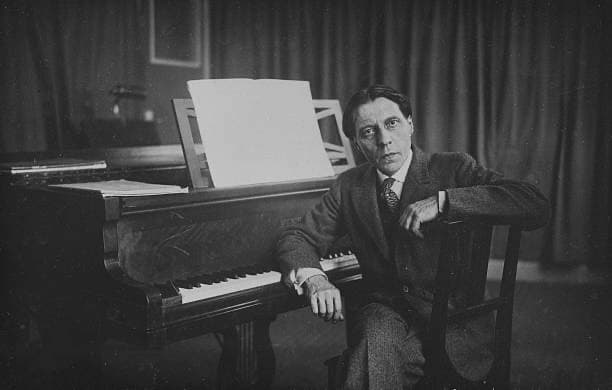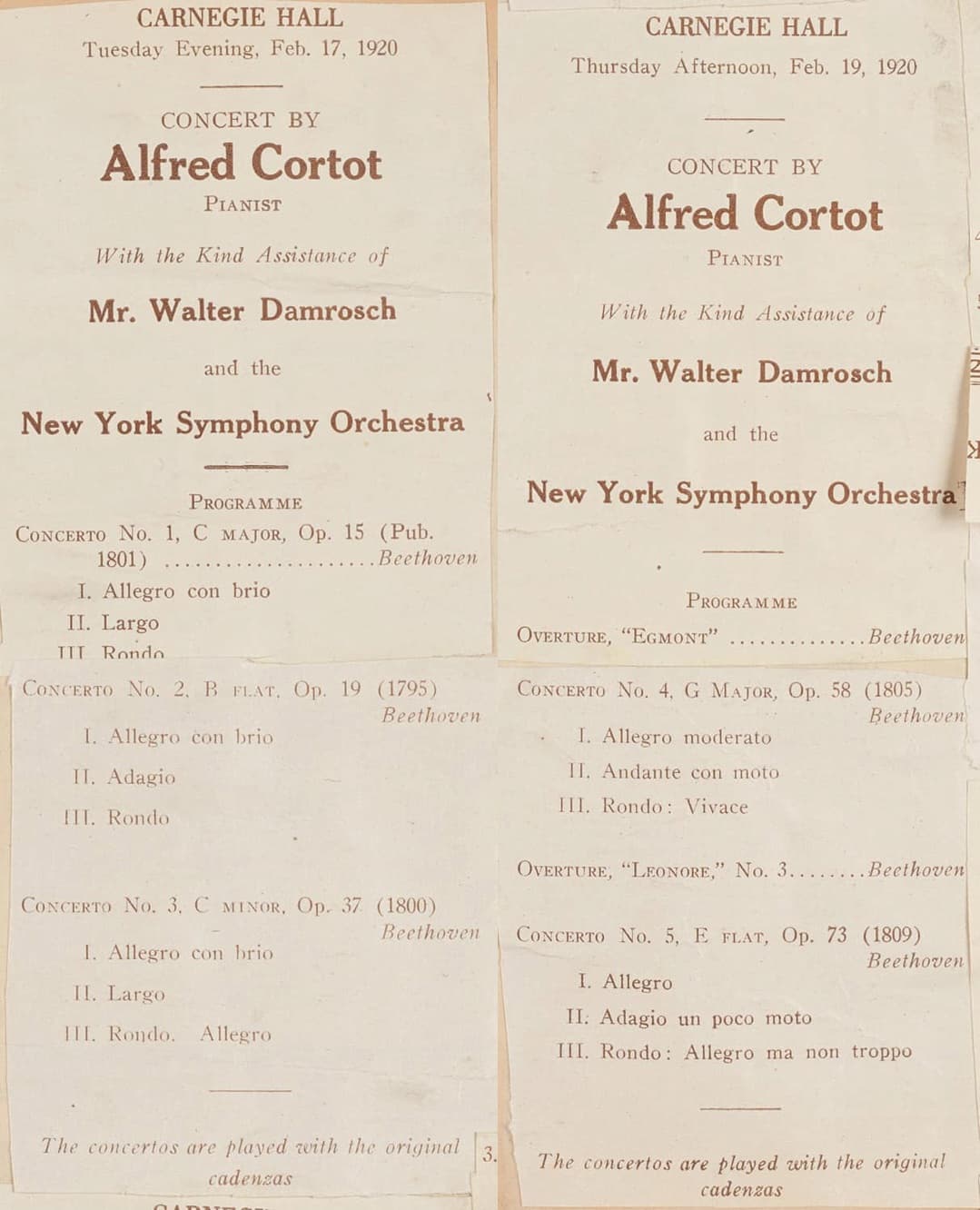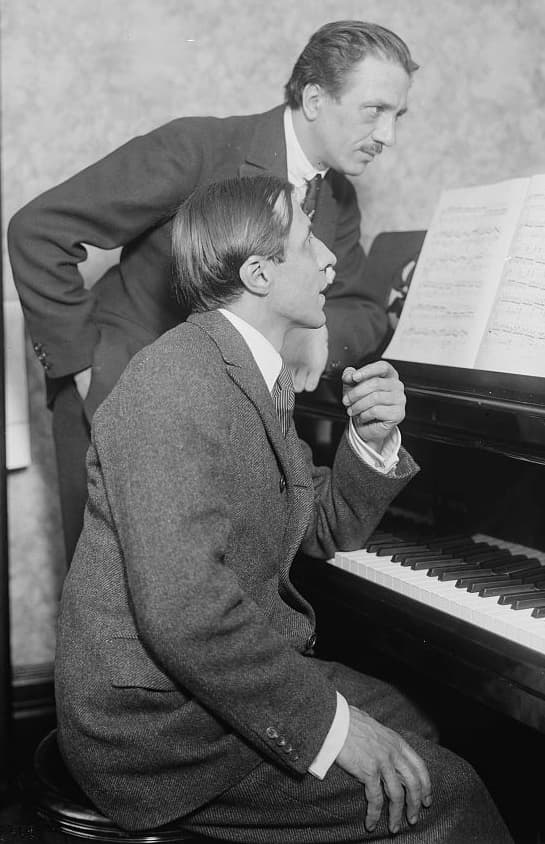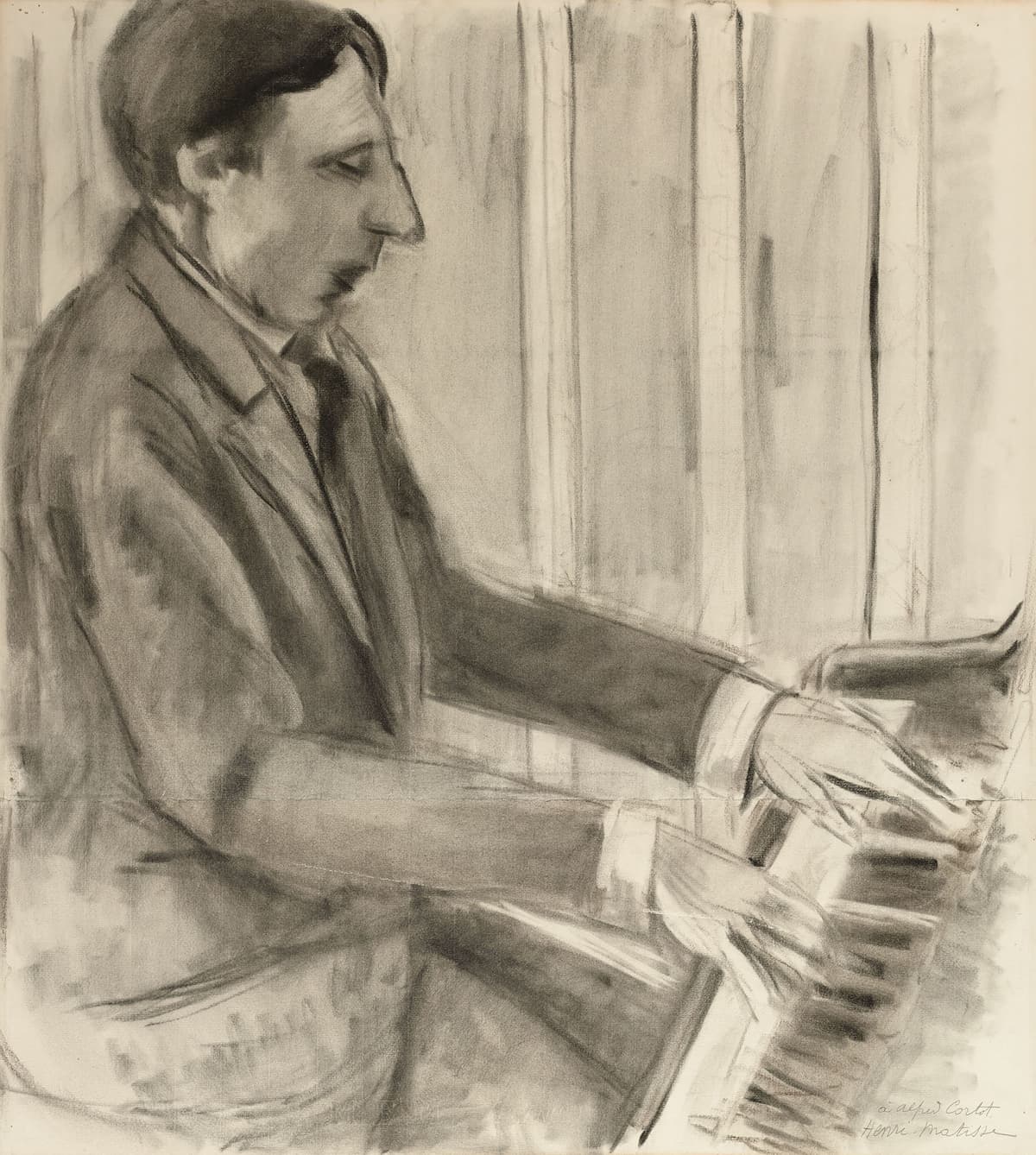There is always one survey or another around that asks noted pianists to name their favourite pianists of all time. In one such survey, Stephen Hough and Angela Hewitt neglected to mention Vladimir Horowitz and Arthur Rubinstein and instead chose Alfred Cortot. As Hough explained, “there are artists who delight listeners with their wild and daring individuality; there are others who uncover the written score with reverence; there are few who can do both. Cortot had a vision which went beyond the academic or the theatrical to some wider horizon of creativity from whence the composers themselves might well have drawn inspiration.”
Alfred Cortot Performs Chopin’s Etude Op. 10, No. 1
In the Beginning

Alfred Cortot
Alfred Cortot was born in Nyon, Vaud, on 26 September 1877 in the French-speaking part of Switzerland, to a French father and a Swiss mother. However, from the age of nine, he primarily resided in France. Because of his Swiss birth and mixed parentage, he never considered himself a Frenchman “pur sang.” A cousin of the composer Edgard Varèse, Cortot studied at the Paris Conservatoire with the Chopin student Émile Decombes, and with Louis Diémer. Taking a premier prix in 1896, he made his professional debut at the concerts Colonne in 1897, performing Beethoven’s 3rd Piano Concerto.
He quickly established himself as a soloist of note, although he continued to cultivate a strong and serious interest in conducting. “I chafed impatiently for a chance… to direct a Beethoven symphony, a Bach Passion, and more than anything, the operas of Wagner,” he later recalled. As such, he decided to spend three years on the musical staff of Wagner’s Bayreuth Festival, ultimately becoming an assistant conductor. In fact, in 1902, at the age of 24, he conducted the premiere of Wagner’s Götterdämmerung in Paris.
Franz Schubert: 6 Moments musicaux, Op. 94, D. 780 – No. 3 in F Minor: Allegro moderato (Alfred Cortot, piano)
Philosophy of Performance

Alfred Cortot’s recital program in NYC
Cortot’s interest in Wagner, and the music of Beethoven, Schumann, and Liszt clearly shaped his playing style and interpretive approach. He was originally trained in the French school of piano playing, which emphasised neo-classical elegance and light and nimble touch. As a scholar writes, “but while Cortot aspired to and attained a like degree of elegance, he was influenced no less powerfully by the high romanticism of his adored German masters.”
Cortot was fond of telling his students, “we are going to declare war on the decorative art, on playing what is technically perfect in every lacy detail but has no soul.” Cortot certainly practiced what he preached, as his performances were intensely romantic and often impulsive. He played with a rich, deep tone, wide-ranging tempos, and considerable rhythmic freedom, but never in the extravagant, eccentric, or flamboyant manner of other pianists of his generation.
Frédéric Chopin: Piano Sonata No. 2 in B-Flat Minor, Op. 35, “Funeral March” – II. Scherzo (Alfred Cortot, piano)
Pedagogy

Alfred Cortot with Jacques Thibaud
Cortot never made the distinction between serious and popular music, steadfastly proclaiming that “music is either music, or else it is not.” He was well aware that classical music was never going to be a popular art. As he explained, “It will always be limited to the spiritual aristocracy, but people sensitive to music, of course, will be found among the masses too.” In order to become a musician, according to Cortot, one must be possessed by music, and “in love with it as one may be in love with a woman.”

Henri Matisse: Alfred Cortot au piano, 1926
This spiritual dimension of music became the essential message in Cortot’s engagement with piano pedagogy. As he writes, “In order to develop qualities of the spirit, which are above all a function of personality and taste, pedagogy can find no point whereupon to attach unless it is in the general enrichment of culture, and in the development of powers of imagination and analysis which can permit the conveying of emotions or of sensations evoked by music. For this, there exist no good or bad systems. There are only good or bad people who teach.” It is indeed telling that Alfred Brendel once described Alfred Cortot as “the one pianist who equally satisfies my mind, my senses, my emotions.”
For more of the best in classical music, sign up for our E-Newsletter
